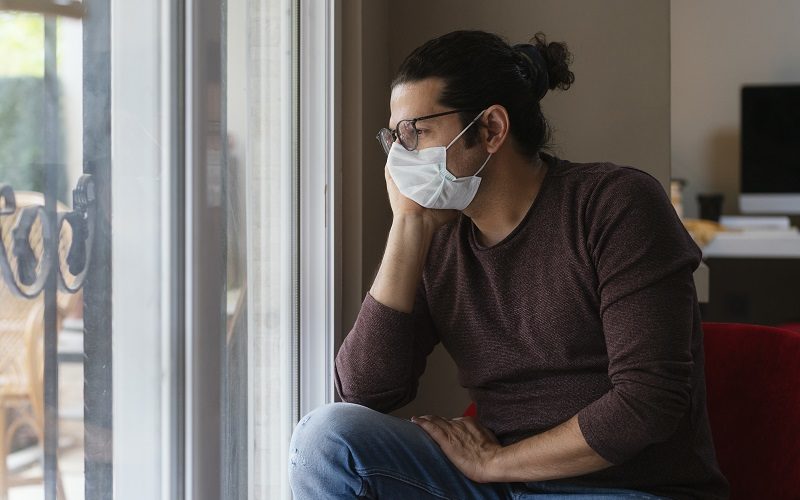
One in every 12 men in the UK are suffering from a mental health disorder and suicide remains the biggest cause of death for men under 35. At the same time, men are much less likely to access psychological therapies than women, with research showing that only 36% of referrals to specialist services for the treatment of depression and anxiety are men.
Nearly four in ten (38%) men surveyed by YouGov and Jacamo say they have noticed a negative effect on their mental health since going into lockdown in March. Feedback from 1,920 Samaritans charity volunteers – who have been taking calls throughout lockdown – has also revealed that poorer middle-aged men are the group most at risk of suicide during the current Covid-19 crisis, with a third of the 7,000 requests they receive every day relating directly to the pandemic.
Stress and anxiety is normal but, as we know, men are generally less likely to express their emotions, or seek help for mental health problems. It’s why men struggling with mental illness are less likely to seek appropriate care. While numerous campaigns have tried to tackle the stigma around mental illness, 20% of men admitted in a recent study that talking about their mental health made them feel vulnerable. The fear of ‘being judged’, ‘not knowing how to start a conversation’, and believing they should be seen as a ‘strong figure’ were among the main reasons they feel unable to talk about what’s going on, which shows just how damaging gender stereotypes can be.
The campaign around World Suicide Prevention Day is key and it is important we recognise, analyse and research how Covid-19 affects different groups of people in different ways, and to support organisations working with men.
Anyone struggling with mental wellbeing should seek help as soon as they can. There is no need to suffer in silence. There are a number of specialist services that provide treatment, including counselling and other talking treatments. At Cygnet, our website provides useful resources for service users and their carers, including what to expect upon admission and the rights provided to people under the Mental Health Act. MIND, the mental health charity, works to empower people experiencing a mental health problem, ensuring they get advice and support, and the Men’s Health Forum provides health tips for men.
However, responsibility for helping people who are struggling with health issues starts with all of us. World Suicide Prevention Day is an opportunity to start a conversation with people closest to us, whether they are family, a friend or colleague.
So what can we do if we think someone is suffering? Here are five ways to break the ice:
- Connect. Go and talk to someone rather than sending them a text or email – start off with something neutral like: “Why don’t you tell me how you are feeling?” or “I can see you are feeling low?” This way you can find out what’s troubling them and what you can do to help.
- Let them share as much or as little as they want to. Let them lead the discussion. Talking can take a great deal of courage and trust. You might be the first person they have been able to talk to.
- Listen to what they tell you, without making assumptions. While offering support, try not to jump in with your own diagnosis or solutions.
- Offer help in seeking professional support. You might want to offer to go to the GP with them, or talk to a family member, although try not to take control.
- Call out anyone who makes a disparaging remark about someone with a mental illness. Tell them why they’re wrong and educate them. It’s one way we can we break the stigma surrounding mental illness.